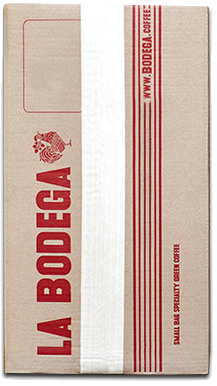Brazil – Organic Cascara – Cascara Tea – Espirito Santo – Fazenda Camocim – Biodynamic C18780
Specs:

Source:
Brazil
Farm:
Fazenda Camocim
Variety:
Common Brazilian Varieties
Altitude:
1000-1350 MASL
Notes:
"Hibiscus tea, raisin, and cider flavors with tangy acidity."
Price/Bag:
$15.87 per lb
$140.00 per 4 KG box2 in stock
Background:
Cascara
What is Cascara?
When coffee is processed, the layers of skin, fruit, and parchment are broken down and removed, leaving behind the seeds we roast and brew. Those discarded layers once provided life and protection to the seeds, but don’t have to all go to waste. The skin of the coffee cherry can be dried and sold as a singular product called Cascara.
Cáscara is a Spanish word that translates to peel, shell, rind, husk, and skin. Countless organic and inorganic objects have an outermost layer, so it’s important to note that this Spanish word isn’t exclusive to the coffee cherry. As this product has trended in interest over recent years, though, “Cascara” has become the moniker for dried coffee cherry skin.
This dried fruit skin can be brewed with hot water to make a tea-like beverage that carries the flavor of the dried coffee cherry into the cup. For those that have never tasted it, it has a tart, raisin-like flavor with a mild fruit rind bitterness that is fascinating on its own and can also be used as an ingredient in a mixed drink.
Fazenda Camocim
The Café Bio Project in Espirito Santo, Brazil, operates on about 230 hectares of land where over 300,000 coffee trees are currently planted. Among these trees, you can find a number of diverse varietals, including Red Catuai, Yellow and Red Catucai, Red Catucai-acu, Yellow Caturra, experimental Gesha, Pacamara, and yellow arara.
Café Bio Project is considered a biodynamic farm grown within an agroforestry system. Biodynamic farming shares many principles and methodologies with organic farming. Similar to an organic farm, on a biodynamic farm, you won't find any pesticides, fertilizers, herbicides, or other toxins common in chemical agriculture. Beyond these practices, biodynamic farming includes systems that support bio self-sufficiency. Biodynamic farming is built from the philosophy that the land is an autonomous living being and should be cared for holistically. Investing energy and resources into the soil is central to the practice of biodynamic farming. The idea is that a farm should operate on and sustain its natural ecosystem with as little interference as possible to maintain its natural balance.
Biodynamic farming practices atCafé Bio Project have the potential to improve the quality of life for farmers, members of the community, and the local biosphere by preserving soil, protecting water resources, and reducing carbon emissions. With continual effort, ingenuity, and investment, the farm is working towards planting new varietals, experimenting with soil and plant processes, improving post-harvest procedures, utilizing different fermentation practices, and building new partnerships.
For a customer to label any coffee as Biodynamic® on the printed label, they MUST be certified with Demeter for the handling of the coffee. They can verbally tell their clients or write it on store promotional signage, but unless they go through Certification with Demeter, they cannot print on the label the coffee is Demeter Certified or identify it as Biodynamic on the label.
Recommendations
-

Bolivia – FTO La Paz – La Cooperativa Corpus Cristhy Illampu R.L – Red Catuai & Typica – FLO ID 3645
$ 5.14 per lb Add to cart -

Brazil – Organic Cascara – Cascara Tea – Espirito Santo – Fazenda Camocim – Biodynamic
$ 15.87 per lb Add to cart -

Burundi – Microlot – Gakenke – Kayanza – Washed
$ 6.05 per lb Add to cart -

Colombia – Decaf Origin Select – EA Decaf de Cana – Huila
$ 5.27 per lb Add to cart

















